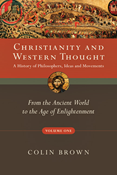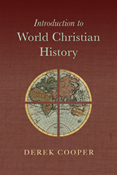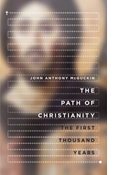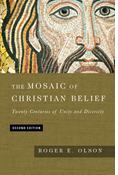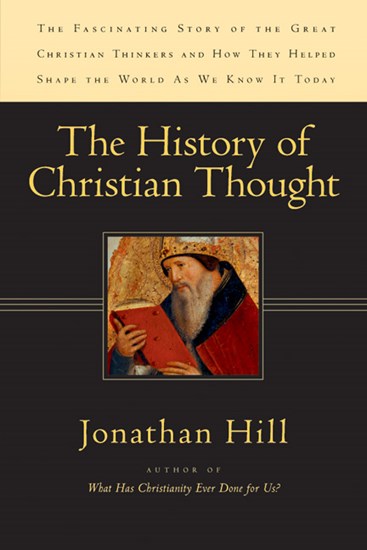
|
The History of Christian Thought
paperback
|
- Length: 352 pages
- Dimensions: 6 × 9 in
- Published: May 16, 2007
- Imprint: IVP Academic
- Item Code: 2845
- ISBN: 9780830828456
-
Other Retailers:
Amazon*
*affiliate partner
Why read about the history of Christian thought?
Because, if you are Christian yourself, it helps you to understand the faith--addressing everything from where Christians got their ideas of the Trinity and how Christ can be both human and divine to what they think about issues like feminism, globalization and social justice.
And because, even if you are not, all Western society has been shaped by the influence of thinkers like Augustine, Aquinas and Luther. You can't understand the world as it is without knowing something about Christian thought.
Jonathan Hill has the uncanny ability to sketch portraits of his subjects--whether early church apologists, medieval doctors of the church, Reformation giants, nineteenth-century philosophical behemoths or contemporary feminist scholars--that are simultaneously lively, brief and revealing. Similarly, he ably penetrates to the nub of their thought, combining apt description with pithy quotations from their work.
Significant events, councils, movements and terms are introduced and explained, which put the cast of characters in context and illumine their place within the development of Christian thought. Not content to merely describe, Hill offers pertinent assessments that highlight the strengths and weaknesses of his subjects' contributions to Christian thinking and spurs you to reflect on significant issues for yourself.
A society with no grasp of its history is like a person without a memory. So Hill, in this lively and accessible introduction, offers you a wealth of insight on the history of Christian thought and the colorful personalities of those who gave it shape and form.
"Well-informed, comprehensive, generous without being uncritical, the history is written in a lively and untechnical style and gives the reader just what's required to see the development of Christian thought in its scope and in its parts. For breadth, clarity and accessibility, this book has few equals."
"Scholars and other interested readers will appreciate the succinct, authoritative work of Jonathan Hill in this book. Serious differences now exist on how best to relate the history of Christian thought, but Hill does good work with how he has chosen to tell the story."
"A fascinating and invaluable book, accessible to the nonexpert but also a reliable resource for the student and even the teacher. For those . . . who simply want to browse through the ideas of some of the greatest minds of the Christian era, it is sheer delight."
There are massive reference books with copious information to which I could turn, but I also needed something compact, something I could keep on my desk for the quick reference between lectures. Then a friends introduced me to [this] very handy little book. It was just what I needed. This succinct volume packs a load of useful information. Each entry is clear and easy to read. Hill does a fine job of simplifying complex ideas without being unduly simplistic. Another notalbe characteristic is that Hill treats different schools of thought in a balanced and objective way.
"An enormous subject, tackled in a lively and accessible way."
CONTENTS
Introduction
Part 1: The Church Fathers
Greek Philosophy
Justin Martyr
Rome
Irenaeus of Lyons
Gnosticism
Tertullian
Origen
Alexandria
Neoplatonism
The Conversion of Constantine
Arianism
The First Council of Nicea
Athanasius
Constantinople
The Cappadocian Fathers
The First Council of Constantinople
The Desert Fathers
Pelagianism
Augustine of Hippo
Cyril of Alexandria
The Council of Ephesus
The Council of Chaldedon
Part 2: The Byzantine Empire
Byzantium
Pseudo-Dionysius
The Second Council of Constantinople
The Third Council of Constantinople
Maximus the Confessor
Symeon the New Theologian
The Second Council of Nicaea
The Rise of Islam
The Great Schism
Gregory Palamas
Mount Athos
The Third Rome
Part 3: The Middle Ages
The Dark Ages
The Holy Roman Empire
Augustine of Canterbury
Erigena
The Monasteries
Anselm
Feudalism
Chivalry
Peter Abelard
Paris
The Mendicant Orders
Thomas Aquinas
The Rediscovery of Aristotle
Bonaventure
John Duns Scotus
Oxford
Medieval Mysticism
The Inquisition
John Wyclif
Jan Hus
Part 4: The Reformation
The Renaissance
Martin Luther
The Conquistadors
John Calvin
Geneva
The Later Reformation
The Council of Trent
Puritanism
Pietism
John Wesley
Part 5: The Modern Era
The Enlightenment
Gotthold Lessing
Immanuel Kant
Romanticism
Friedrich Schleiermacher
Tübingen
Søren Kierkegaard
Geology and Biology
Evangelicalism
Albrecht Ritschl
John Henry Newman
The Oxford Movement
The First Vatican Council
Albert Schweitzer
Part 6: The 20th Century
Karl Barth
Rudolf Bultmann
Existentialism
Dietrich Bonhoeffer
Reinhold Niebuhr
Paul Tillich
Karl Rahner
The Second Vatican Council
Process Theology
Liberation Theology
Pentecostalism
Jügen Moltmann
Feminist Theology
Postmodernism
Wolfhart Pannenberg
African Christianity
Asian Christianity
Epilogue
Glossary
Further Reading
Index


